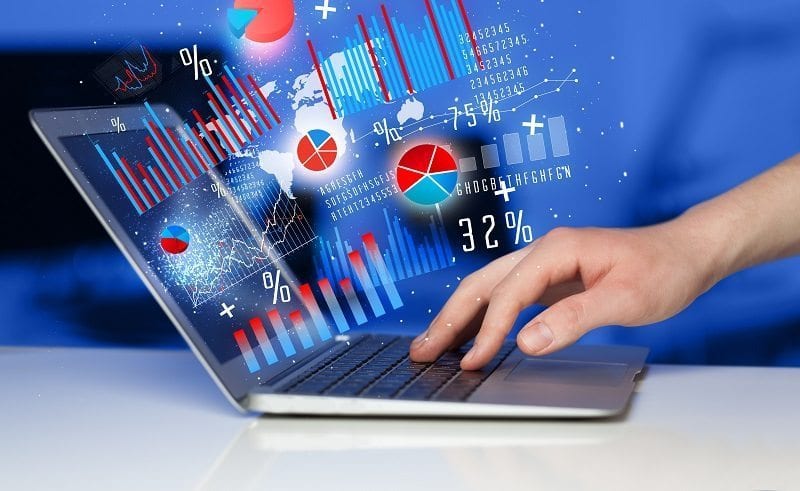
If there’s one trend we’ve seen in the past year, it’s that CRM software is getting more comprehensive and that includes things like real-time eCommerce integration. As you come to rely on your CRM more and more for every customer interaction — from marketing, to sales, to customer service — you may find yourself asking what kind of accounting data should be fed into CRM to make these customer interactions even more seamless. As businesses become more customer centric, they need to be more agile and able to respond to the needs of their customers quickly. In order to do so, your employees who use your CRM will need some access to accounting data. How much? In this article, I break down the requirements across the marketing, customer service, and sales departments.
For Marketing
From a traditional marketing perspective there’s not a lot of accounting data that you need. Typically on that front, the marketers are segmenting customers based on other categories, like industry or purchasing habits. However as the traditional roles for sales and marketing change to adapt to the new reality of a customer-driven sales process, marketers may find that they need more access to accounting data to really drive their efforts. In addition, as business models change to embrace smaller recurring and add-on transactions it is not good enough to know that you got a customer, but you need to know what else they purchased from you and when. In some industries it is also important to know how quickly they paid you for your products and services, so historical payment data, which does not come out of the box in systems like Microsoft CRM, can be critical information for our marketing team.
For Customer Service
On the customer service side, if a customer is calling in they’re typically doing so because they’re either having a problem using your service or they have a billing question or sometimes both especially if you offer a number of small product upgrades or add-ons. If they have a billing question, they need whomever they’re talking to from a customer service standpoint to have as much information about their account as possible. What invoices are there on the account? What invoices are currently outstanding? What payments have been made, how have they been applied to invoices on your account and how were those payments made? Etc.
[LIKE THIS ARTICLE SO FAR? THEN YOU’LL WANT TO FOLLOW US ON TWITTER TO GET THE LATEST CRM AND SALES INSIGHTS]
Why is having all this information so important? Let’s say a customer calls in. They want a customer service rep to be able to say, ‘This is what you paid, this is what you haven’t paid, this is how you paid,’ and even more important, ‘if you want to pay right now, I can help you do that.’ As businesses become more agile and customer centric, customers expect them to either be able to process a payment over the phone or immediately make a payment through a customer-facing portal while the customer service representative is still on the phone. They don’t want to be put on hold and transferred to another department if they want to make a payment, those types of customer interactions are the old bureaucratic way of doing business and do not leave your customers with a good feeling about your firm. This is where payment data and eCommerce functionality can add a lot of value to your CRM system.
For Sales
Like your customer service staff, your sales team members may have a need for conducting real-time transactions with customers, depending on the value of what you are selling. There’s no better close to a sales effort than to actually collect the money.
Sales staff may also want to see some operational accounting data as this can help then answer questions when a customer comes back to them about the status of their order. If your business is selling professional services or other time-based services it may be important for your sales team to see how much revenue has been recognized and when, so when they are talking to that customer about additional sales opportunities they can answer any questions the customer may have about their current contracts.
What accounting data don’t you need in your CRM?
While I think it’s important for CRM to contain some accounting data, I’m by no means arguing that a CRM should be able to replace your accounting software. You don’t want to have so much data in your accounting system that your employees are confused by what is relevant and what isn’t.
So what accounting data don’t you want in your CRM? Well, you’ll notice that all the categories I listed above fit squarely on the revenue side of the equation. There are very few instances in which your marketing, customer service, or sales staff will need access to your company’s expenses to have effective customer interactions. For instance, it’s irrelevant to a customer service rep what it costs to rent office space or to make payroll. And at no point will anyone on your sales and marketing staffs need to know what your business’s owners’ equity and liability accounts contain.
***
As I said, I’m not advocating for CRM to replace your accounting system. But as the customer user experience becomes more frictionless, your CRM is going to be expected to remove much of that friction, and it won’t be able to do that without access to accounting data. Not only will it enhance the customer experience, but most customers have now come to expect it.
Are you ready to take your business to the next level with cutting-edge CRM technology? Go here to learn more.
